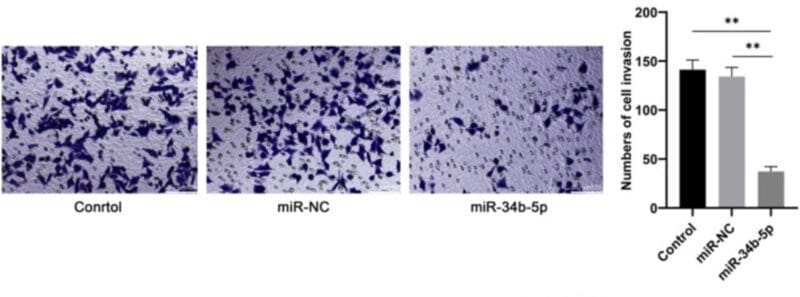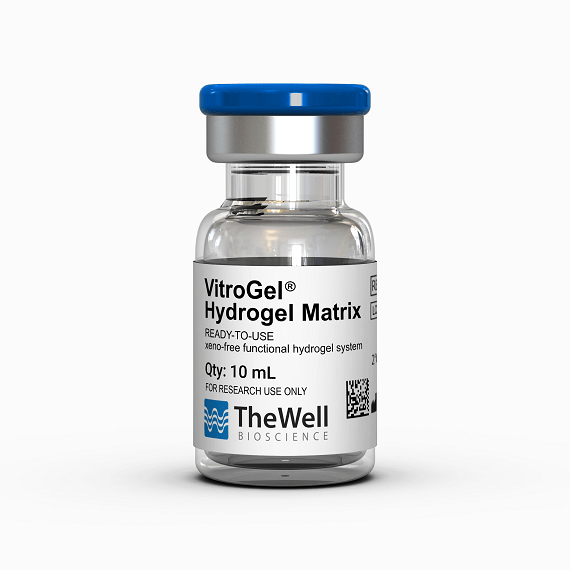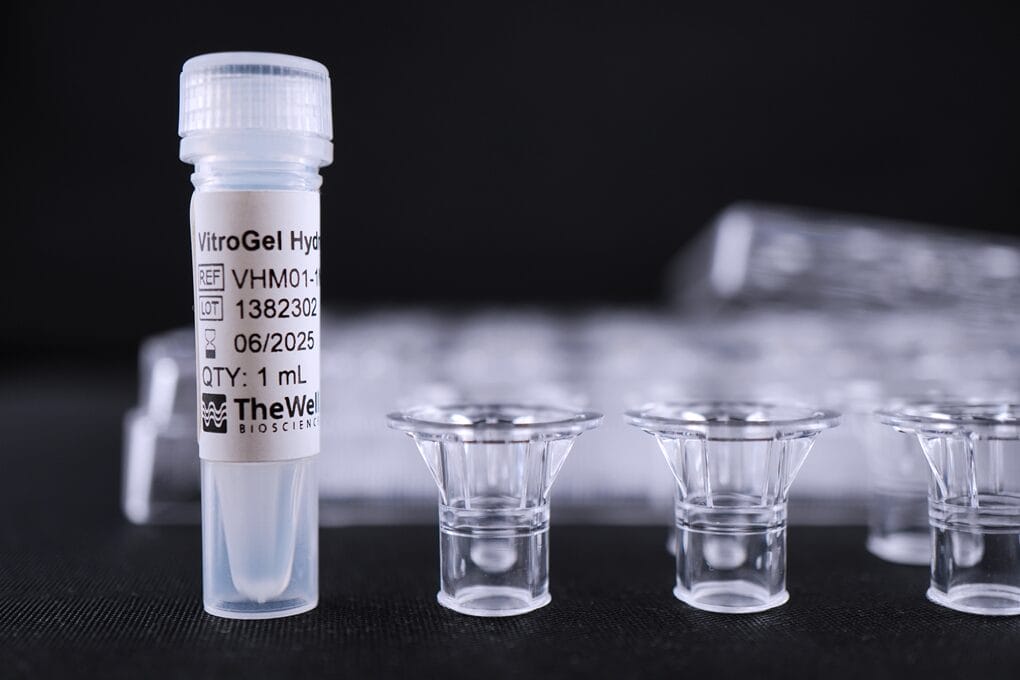Research Highlights
miR-34b-5p: A New Hope in Endometrial Cancer Treatment

Institutions:
School of Clinical Medicine, Ningxia Medical University
Team:
Lulu Shi, Dan Yang, Hui Dong, Xueyu Zhang, Caihong Yang
Disease Model:
3D Cell Models & Functional Assay
Subcategory/cell type:
Invasion assay/human endometrial cancer AN3CA cells
Hydrogel:
VitroGel® Hydrogel Matrix
Utilizing VitroGel® Hydrogel Matrix to Unveil the Role of miR-34b-5p in Cancer Metastasis
Endometrial cancer is a significant health concern, with metastasis being a primary cause of recurrence and mortality. Understanding the mechanisms behind cancer cell migration and invasion is crucial for developing effective treatments. One of the challenges in cancer research is creating an environment that closely mimics the in vivo conditions to study these processes accurately.
In this study, Lulu and colleagues used VitroGel® Hydrogel Matrix in the transwell assays to create a 3D environment that closely mimics the extracellular matrix of tissues. The xeno-free, bio-functional VitroGel® Hydrogel Matrix was added to the upper chamber of the transwell and incubated at 37°C for 3 hours. Subsequently, cells were suspended in a serum-free medium and seeded onto the upper chamber, while a complete medium containing 10% FBS was added to the lower chamber. After 24 hours of incubation, non-invasive cells were removed, and the cells that invaded the lower chamber surface were fixed and stained for analysis. VitroGel® Hydrogel Matrix provided a more realistic model for studying cell behavior. This 3D environment allowed for a more accurate assessment of cell invasion, which is a critical aspect of cancer metastasis. Using this VitroGel®-based invasion model, the researchers could observe the inhibitory effects of miR-34b-5p on cancer cell proliferation and invasion more reliably. The results showed that overexpression of miR-34b-5p significantly inhibited these processes by targeting ZEB1, demonstrating the potential of miR-34b-5p as a therapeutic target for endometrial cancer
The findings revealed that miR-34b-5p significantly suppresses EMT and metastasis by targeting ZEB1, a key regulator of tumor progression. The use of the VitroGel® Hydrogel Matrix was instrumental in these discoveries, providing a more realistic model to study cell behavior. This advanced system helped to demonstrate the potential of miR-34b-5p as a therapeutic target, offering new insights into endometrial cancer treatment. The success of this study highlights the importance of using sophisticated models with VitroGel® Hydrogel Matrix in cancer research, paving the way for future studies to explore similar mechanisms in other types of cancer.
Read the publication:
Related Products:



